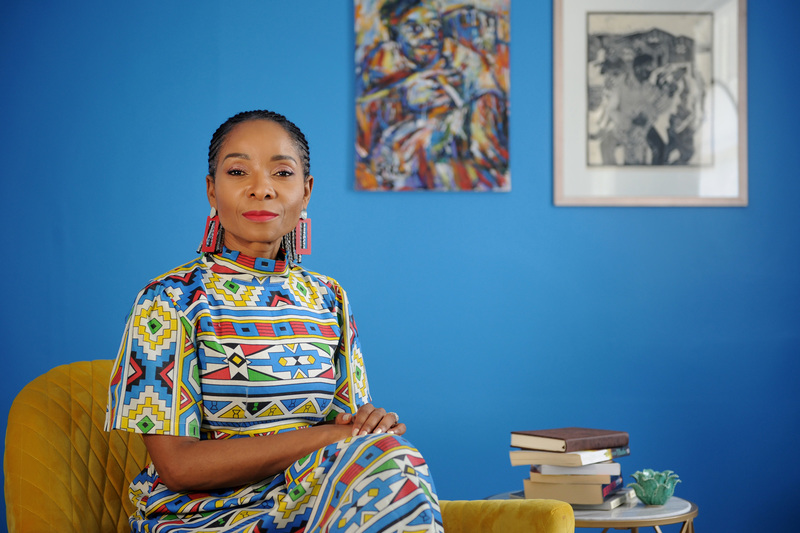UCT takes steps to support national lockdown
24 March 2020 | From Kgethi
Dear colleagues and students
Last night, President Cyril Ramaphosa announced a countrywide lockdown, commencing at midnight, Thursday, 26 March, and lasting until 16 April 2020.
This was done to contain the spread of the virus and “flatten the curve”. The impact of the lockdown is that, apart from certain exempt sectors, no one will be allowed to leave their houses, except to buy food or seek medical attention.
This places the University of Cape Town in an unsustainable position and we require every student to return home as soon as possible.
As a result of the lockdown, no member of staff will be allowed in any UCT building, including residences in the event of an emergency. All academic activities, including research, on campus will also cease. It is now a legal imperative that all residences must close. All students – including those who received prior approval to stay – must vacate UCT premises urgently and return home. Otherwise you will be in violation of the lockdown.
All students must now leave the residences by 17:00 on Wednesday, 25 March. At that time all residences will be locked down, electronic access will be removed and Wi-Fi, electricity and water will be shut off.
UCT will provide travel assistance for students unable to pay for their departure. We will engage with foreign embassies to ensure that international students can return safely to their countries as soon as possible.
We are in an unprecedented moment, as the President said last night. We all carry a huge responsibility to mitigate the impact of the COVID-19 epidemic on our country.
I therefore appeal to all members of the UCT community – staff and students – to do all that is necessary to support the country and one another in the time ahead.
We are continuing to discuss how we will continue UCT’s necessary work as we enter the lockdown phase, but for now I urge you all to prepare for the deadline of Thursday, 26 March 2020.
I thank all staff and students who are making the right decision to do all we can to “flatten the curve”. This crisis creates many anxieties and personal complexities for all of us, yet I see so many of you still doing your part to help all fellow citizens as we battle the impact of the pandemic on our country. You make me proud.
Sincerely
Professor Mamokgethi Phakeng
Vice-Chancellor
This communication has been corrected. Update: 08:50, 26 March 2020.
Updates will be posted on UCT’s Coronavirus Disease 2019 feature page on the UCT News website.
Read previous communications:
 This work is licensed under a Creative Commons Attribution-NoDerivatives 4.0 International License.
This work is licensed under a Creative Commons Attribution-NoDerivatives 4.0 International License.
Please view the republishing articles page for more information.
Coronavirus Disease 2019 updates
COVID-19 is a global pandemic that caused President Cyril Ramaphosa to declare a national disaster in South Africa on 15 March 2020 and to implement a national lockdown from 26 March.
UCT is taking the threat of infection in our university community extremely seriously, and this page will be updated regularly with the latest COVID-19 information. Please note that the information on this page is subject to change depending on current lockdown regulations.
Frequently asked questions
Daily updates
Campus communications
2020
Resources
Video messages from the Department of Medicine
Getting credible, evidence-based, accessible information and recommendations relating to COVID-19
The Department of Medicine at the University of Cape Town and Groote Schuur Hospital, are producing educational video material for use on digital platforms and in multiple languages. The information contained in these videos is authenticated and endorsed by the team of experts based in the Department of Medicine. Many of the recommendations are based on current best evidence and are aligned to provincial, national and international guidelines. For more information on UCT’s Department of Medicine, please visit the website.
To watch more videos like these, visit the Department of Medicine’s YouTube channel.
Useful information from UCT
External resources
News and opinions

As the COVID-19 crisis drags on and evolves, civil society groups are responding to growing and diversifying needs – just when access to resources is becoming more insecure, writes UCT’s Prof Ralph Hamann.
03 Jul 2020 - 6 min read Republished
The Covid-19 crisis has reinforced the global consequences of fragmented, inadequate and inequitable healthcare systems and the damage caused by hesitant and poorly communicated responses.
24 Jun 2020 - >10 min read Opinion
Our scientists must not practise in isolation, but be encouraged to be creative and increase our knowledge of the needs of developing economies, write Professor Mamokgethi Phakeng, vice-chancellor of UCT, and Professor Thokozani Majozi from the University of the Witwatersrand.
09 Jun 2020 - 6 min read Republished
South Africa has been recognised globally for its success in flattening the curve, which came as a result of President Ramaphosa responding quickly to the crisis, writes Prof Alan Hirsch.
28 Apr 2020 - 6 min read RepublishedStatements and media releases
Media releases
Read more
Statements from Government
In an email to the UCT community, Vice-Chancellor Professor Mamokgethi Phakeng said:
“COVID-19, caused by the virus SARS-CoV-2, is a rapidly changing epidemic. [...] Information [...] will be updated as and when new information becomes available.”
We are continuing to monitor the situation and we will be updating the UCT community regularly – as and when there are further updates. If you are concerned or need more information, students can contact the Student Wellness Service on 021 650 5620 or 021 650 1271 (after hours), while staff can contact 021 650 5685.
























































































































































































